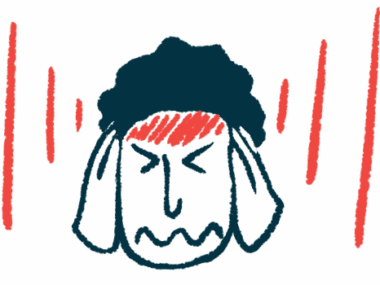SB12, Potential Soliris Biosimilar, Fares Well in Phase 1 Trial
Written by |

SB12, Samsung Bioepis’ biosimilar candidate of Soliris (eculizumab), is comparable to the original medication in terms of safety, pharmacological properties, and immunoreactivity profile, according to data from a Phase 1 clinical trial in healthy volunteers.
Soliris, by Alexion Pharmaceuticals, is an approved therapy for a number of conditions, including neuromyelitis optica spectrum disorder (NMOSD).
These findings were presented through a poster at the 2021 American Society of Hematology (ASH) Annual Meeting and Exposition, held Dec. 11–14 in Atlanta and virtually.
The poster was titled “A Randomized, Double-Blind, Single-Dose Phase 1 Comparative Pharmacokinetic Study Comparing SB12 (Eculizumab Biosimilar) with Reference Eculizumab in Healthy Volunteers.”
“We are excited to share the Phase 1 clinical results of our first hematology biosimilar with the medical society,” Dong-hoon Shin, vice president and medical and lifecycle team leader at Samsung Bioepis, said in a press release.
“We will continue to advance our clinical development efforts to demonstrate biosimilarity and quality of our [Soliris] biosimilar through [a] Phase 3 study, and advance our innovative development platform to bring affordable, additional treatment options for patients who don’t have access to medicines,” Shin added.
NMOSD is characterized by inflammation of the optic nerve and spinal cord due to abnormal immune attacks against the cells that support the nervous system. These immune attacks most commonly involve antibodies against the aquaporin-4 (AQP4) water channel protein.
Soliris is approved in North America, Europe, and Japan to treat people with NMOSD who are positive for anti-AQP4 antibodies.
Administered directly into the bloodstream, the therapy works by blocking C5, a protein of the complement system that is involved in the immune and inflammatory reactions that drive nerve damage in NMOSD. The complement system is a set of blood proteins that are part of the immune system.
SB12 is being developed as a potential biosimilar of Soliris.
A biosimilar is a biological medicine with a high degree of similarity — in terms of quality, safety, and efficacy — to an already approved reference therapy. Biosimilars are typically less expensive than the original medicine since their clinical development process is based on comparative studies alone, often requiring less time and money.
The Phase 1 trial (NCT03722329) evaluated the safety, tolerability, pharmacokinetics (PK), pharmacodynamics (PD), and immunoreactivity of SB12 against Soliris in 240 healthy volunteers, ages 18 to 55.
Pharmacokinetics refers to the therapy’s movement into, through, and out of the body, while pharmacodynamics refers to its effects on the body, which in this case was on the complement system. Immunoreactivity, or immunogenicity, refers to the therapy’s ability to provoke an unwanted immune response.
Participants, recruited at a single site in Germany, were randomly assigned to receive an into-the-vein 300 milligram infusion of either SB12, U.S.-sourced Soliris, or Europe-sourced Soliris (with 80 participants in each group).
Results showed that the trial met its main and secondary PK goals, with SB12 and Soliris from either source being processed by the body in similar ways and resulting in comparable total and maximum treatment exposure.
Also, all three therapies led to a rapid, equivalent reduction in complement system activity, which was slowly restored after the infusion.
Their safety profiles were also comparable, with similar adverse event rates between SB12 (70%), U.S.-sourced Soliris (71.3%), and Europe-sourced Soliris (65%), and no deaths or discontinuations due to adverse events in any group.
One participant in the SB12 group and one in the U.S.-sourced Soliris group experienced a serious adverse event that, in both cases, was deemed not related to treatment.
SB12 also showed equivalent immunoreactivity to Soliris of either source, with few participants developing antibodies against each therapy: two (2.5%) with SB12, one (1.3%) with Europe-sourced Soliris, and none with Soliris from the U.S.
None of these antibodies was found to have neutralizing properties against the therapy, which could limit its effectiveness.
These findings demonstrated “PK bioequivalence and showed comparable PD, safety, immunogenicity between SB12 and the [reference product Soliris],” the researchers wrote.
The first biosimilar of Soliris was approved in Russia in 2019, and Alexion was able to stave off U.S. biosimilar versions of Soliris until 2025, when ABP 959, a biosimilar by Amgen, is set to enter the market.






